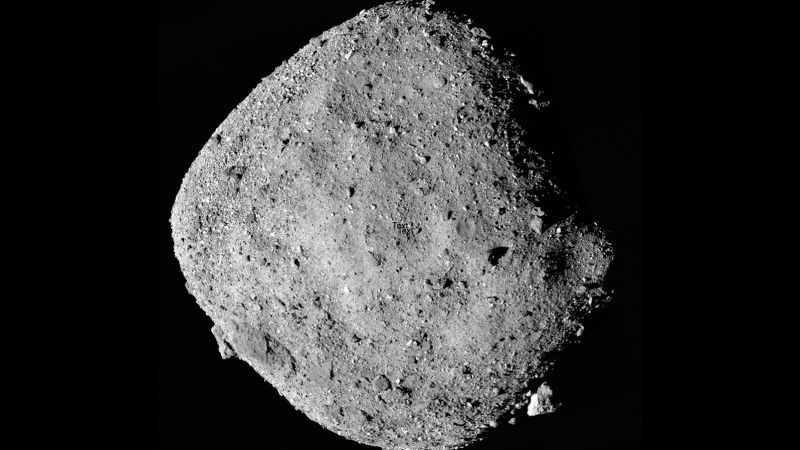The possibility of an asteroid impact remains a pertinent topic in planetary science, particularly with the near-Earth asteroid Bennu, which poses a theoretical risk to our planet. Current research indicates that should Bennu strike Earth, it could inflict considerable global damage, despite its smaller size compared to the asteroid that resulted in the dinosaurs’ extinction. Astronomers project a 1 in 2,700 chance of Bennu impacting Earth in September 2182, which translates to a mere 0.037% probability. This probability, while low, necessitates examination of the potential consequences associated with such an event.
Bennu is a medium-sized asteroid, measuring approximately 1,640 feet (500 meters) in diameter. In contrast, the asteroid believed to have led to the demise of the dinosaurs was about 6.2 miles (10 kilometers) wide. The recent spatial missions conducted by NASA, specifically the OSIRIS-REx mission, have revealed that Bennu carries fundamental building blocks of life. Given the projected timeline and the asteroid’s significance, researchers assessed the potential impact scenarios and modeled their outcomes, which were detailed in a recent study published in the journal “Science Advances.”
According to the study, medium-sized asteroids like Bennu collide with Earth approximately once every 100,000 to 200,000 years. The implications of Bennu’s collision could be severe, leading to a global winter characterized by a sharp reduction in rainfall and significant cooling of Earth’s climate—a phenomenon that may have previously influenced human evolution, as noted by lead author Dr. Lan Dai from the IBS Center for Climate Physics in South Korea.
The research utilized advanced climate models powered by the Aleph supercomputer to evaluate various scenarios of a potential Bennu impact. Central to the analysis was the injection of between 100 million and 400 million tons of material into the Earth’s atmosphere and its resultant effect on atmospheric chemistry and climate. Initial simulations suggested immediate consequences in the form of shock waves, craters, and earthquakes, coupled with an influx of aerosols and gases that could trigger long-lasting climatic changes.
The researchers revealed that if Bennu were to strike the ocean, it could ignigate catastrophic tsunamis, while simultaneously injecting large volumes of water vapor into the atmosphere. This could lead to extensive ozone depletion, which may span years. The study outlined that while climate-active aerosols would contribute to a temporary cooling of Earth, greenhouse gases might induce long-term warming. Specifically, the most extensive simulation indicated that 400 million tons of dust could lead to a “global impact winter,” characterized by severe drops in temperature, diminished sunlight, and decreased rainfall levels.
Dai describes that the influx of dust in the atmosphere could drastically lower global temperatures by approximately 7.2 degrees Fahrenheit (4 degrees Celsius). This cooling could significantly disrupt photosynthesis, initially reducing terrestrial and marine ecosystem productivity by 20% to 30%, thereby posing rampant challenges to global food security. Although modern humans have not encountered such events, Dai likens the cooling effects to those caused by massive volcanic eruptions, such as the Toba super-eruption roughly 74,000 years ago.
Additional findings suggest that marine plankton, initially expected to diminish post-impact, may rebound more rapidly than anticipated due to an increase in iron contents from asteroidal dust—illustrating an unexpected resilience in ocean ecosystems. The simulated proliferation of certain types of phytoplankton could temporarily alleviate food shortages arising from diminished land-based agricultural productivity. The future research direction aims to analyze how early humans might adapt to the climatic shifts provoked by an asteroid strike, underscoring the inevitability of such impacts and their interconnectedness with Earth’s life-sustaining systems.
The study emphasized not only potential negative consequences of asteroid impacts but also the adaptive qualities of ecosystems that could arise in the aftermath. Acknowledging that “impacts are inevitable,” the research ultimately advocates the necessity of studying even smaller collisions, as these are statistically more likely to occur than the cataclysmic events that have become ingrained in popular culture.



